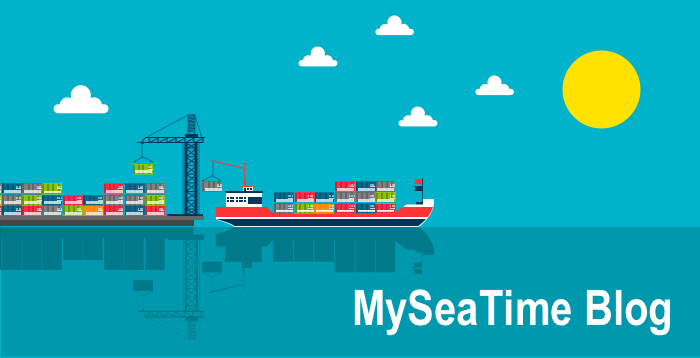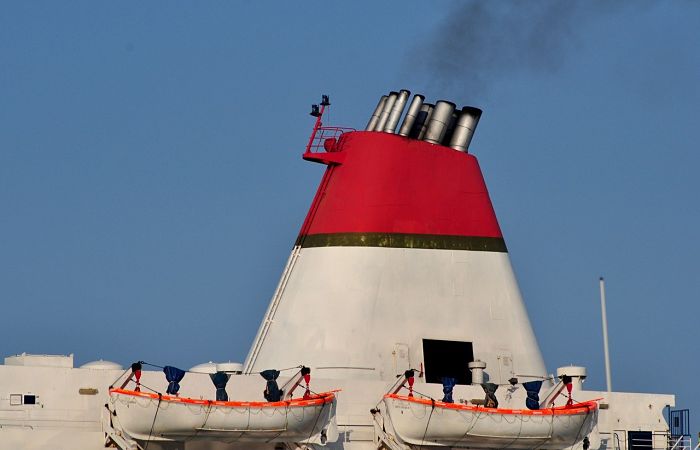IMO Sulphur 2020 has been the keyword for the year 2019.
Rightly so. After all, the deadline for switching over to the low sulphur fuel was fast approaching.
In layman’s terms, after 01st Jan 2020, all vessels need to use fuel with sulphur content less than 0.50% m/m.
By this time, most shipowners already have a strategy in place to comply with this regulation that came in effect from 01st Jan 2020.
The strategy would most likely be among one of the following
- Supply low sulphur fuel
- Install the exhaust gas cleaning system (Called Scrubbers)
- Change over to alternate fuels like LNG
Each option has its own merits and demerits which I have discussed in another blog on IMO Sulphur 2020.
But the shipowner’s and ship manager’s challenges do not end with the choice of the above options.
There are more challenges ahead, beyond 01st Jan 2020.
Challenges beyond 01st Jan 2020
The biggest challenge that all stakeholders may face is the availability of low sulphur fuel.
I am not talking about a few ports which would not have the infrastructure in place to supply low sulphur fuel.
Shipowners and managers can take care of that.
When the shipowners know about these ports they would make arrangements for bunkering at a different port in advance where low sulphur fuel will be available.
I am talking about last-minute changes.
Let us say a ship is scheduled to receive low sulphur fuel at a port.
And when the vessel arrives or is about to arrive at the bunkering port, the bunker supplier informs that the low sulphur fuel is not available.
The ship does not have a sufficient quantity of fuel onboard to reach a port where low sulphur fuel is available.
Or the diversion is way too much for the alternative port of fuel supply.
Shipowners would be in a fix.
It is not that I am the inventor of the above situation.
IMO has assessed this situation and put the measures in place to address this situation.
The measure to address this situation is Fuel Oil non Availability Report (FONAR).
FONAR comes to the rescue
FONAR stands for Fuel oil Non Availability Report.
In case the compliant fuel is not available, the vessel is not required to unduly delay or deviate from the intended voyage.
The vessel can arrive at the port with non-compliant fuel provided that the vessel and vessel managers have made all the efforts to receive the compliant fuel.
FONAR is a report that lists all the details of the voyage and efforts made by the ship operator to get the compliant fuel.
Each port state may have its own format for the FONAR but all would more or less contain the same information.
Here is one of the FONAR format.
FONAR is not an easy way out
We might think that life would be easy with FONAR.
We try to get compliant fuel, we do not get it and we receive high sulphur fuel and send the FONAR to the port state of the next port and that is it.
No, it isn’t that easy.
Sending the FONAR does not mean that we are allowed to use the high sulphur fuel.
It is completely up to the discretion of the port state
- if the vessel can be allowed to use non-compliant fuel
- If the vessel will be fined for use of non-compliant fuel
FONAR simply helps the port state to make that decision.
If the port state is completely satisfied with the efforts made by ship operators as described in the FONAR, the ship may be allowed to use non-compliant fuel without any penalty to the vessel.
If not, the port state may allow use with the penalty to the vessel which would depend upon the seriousness of the non-compliance.
It is entirely up to the port state to decide about the extent of the penalty.
That makes the FONAR so much important.
FONAR is an expensive tool
FONAR is considered to be an expensive tool shipowner should avoid.
There is a reason for that.
It is not about the penalty alone.
Some port states may accept the FONAR and impose no penalty at all.
But if the compliant fuel is available at the port of arrival, they may want the vessel to debunker the non-compliant fuel and bunker the required fuel.
This may require not only de-bunkering but also cleaning of the tank before compliant fuel can be bunkered.
Singapore is one such port where even when FONAR is accepted, it would be required to offload the non-compliant bunker and take compliant bunker.
This process could involve thousands of dollars and days of off-hire for the vessel.
So the best possible way is to avoid being in a situation where the use of FONAR would be required.
To be able to do that each stakeholder needs to take some kind of responsibility to achieve that.
Responsibilities of Master, chief engineer, and the ship
Master, chief engineer, and ship staff play an important role under FONAR.
Their role is that of proactive planning.
This includes
- Do not wait for the commercial operator to ask you about bunkers. Remind them instead well in time.
- Maximizing the bunkers in such a way that the vessel is not short of low sulphur bunkers for the entire voyage
- Proactively calculating the quantity of bunkers to receive at each bunkering port so that the vessel is not short of low sulphur bunkers at any time.
Let us cover this in detail.
Constant reminders about the bunkering activity
Even though bunkering is primarily the responsibility of the vessel’s commercial operator, it does not stop us from timely remind them.
Time is an important factor for the successful consideration of FONAR.
For example, if the communication between vessel and vessel operator regarding bunkering started just a couple of days before arrival the bunkering port, there could be no valid excuse for the non-availability of the fuel at the bunkering port.
And in this case, we can expect the port state to reject the reason for submitting the FONAR.
So the first responsibility of the vessel is to remind the vessel’s commercial operator regarding the bunkering at the next bunkering port.
Maximizing the bunkers
If a vessel is to load maximum bunkers, plan to receive maximum bunkers as per the company’s allowed limit.
If the company permits loading 95% of the bunker tank capacity, do not unnecessarily reduce the quantity to receive say up to 85% just because you do not want to trouble yourself to load 95% of the capacity.
For example, if the vessel has to submit FONAR because the vessel is short of 10-20 MT of low sulphur bunkers, FONAR could be rejected because of vessel short-loaded bunkers at last bunkering port.
Proactive bunker calculation
Loading maximum bunkers is not always a great idea.
We also need to consider to have at least one tank empty before arrival bunkering port with other bunker tanks close to full.
Let us understand this with an example.
A Vessel has 3 bunker tanks with capacities 500 MT, 450 MT, and 400 MT.
Vessel to receive bunkers at Fujairah with another bunkering option enroute in Singapore.
Vessel departs Fujairah with all bunker tanks full. Bunker consumption from Fujairah to Singapore will be about 300 MT.
On Arrival Singapore the vessel will have 500MT, 450 MT and 100 MT in the bunker tanks with no option to receive bunkers in Singapore.
Departure Singapore bunker onboard would be 1050 MT.
If the vessel had received 100 MT less bunkers at Fujairah, we would have one tank empty on arrival Singapore.
In this case, the vessel could have received 400 MT of bunkers in Singapore.
Bunkers onboard on departure Singapore would be 1350 MT instead of 1050 MT.
If after all the efforts, the ship has to receive non-compliant fuel, then it is the master’s responsibility to send the FONAR to its flag state and port state of their next port of call.
If this is sent by the company on the master’s behalf, the mast must ask the company to keep his email in copy or should ask for the email and FONAR report sent.
Responsibilities of Commercial Operator
With IMO 2020 the responsibilities of the commercial operators are going to increase.
Earlier the responsibility of the commercial operator was to get the fuel for the vessel.
Now apart from this, the commercial operator needs to make sure that not just the fuel but compliant fuel is received by the vessel.
This is because earlier fuel with more than 3.5% sulphur (non-compliant fuel) was not available globally.
But now even though the global sulphur limit is reduced to less than 1%, fuel with up to 3.5% sulphur content would still be available for supply to the ships using scrubber technology.
With respect to FONAR, having a contract with one fuel supplier is not considered to be a valid reason for the non-availability of the fuel.
For example, let us say the commercial operator of the vessel has a contract with one fuel supplier in Singapore.
This supplier was unable to provide the compliant fuel to the vessel for some reason.
In this case, it is the responsibility of the commercial operator to enquire with other suppliers in the port for the supply of compliant fuel.
This may be a little expensive option but if this is not done and vessel arrives at a port with non-compliant fuel and submits FONAR, it is most likely that the reason mentioned in FONAR for non-availability will not be accepted by the port state.
Responsibilities of Port state
There are two major responsibilities of port states with respect to FONAR.
First, they have to decide on the validity of the evidence presented in the FONAR by the vessel.
According to their judgment, they have to decide on the action required to deal with non-compliance.
Even though Marpol annex VI, regulation 18.2.3 urges the port states to not take any control measures if actions in FONAR are found to be appropriate.
However, it is absolutely the port state’s discretion on what action they take.
The second responsibility of the port states is to notify IMO when any vessel has submitted FONAR.
IMO assesses the situation of fuel availability based on the FONARs that it receives.
Conclusion
The best way to use FONAR to our advantage is to never arrive in a situation that warrants the use of FONAR.
Everyone from the ship’s staff to the voyage manager and commercial operator plays an important part in achieving that.
And it is by being proactive to the extent that the vessel never is short of compliant fuel.
But sometimes situations are not our favor and we must bunker non-compliant fuel.
In this case, the master must fill the FONAR in a discussion with the company and commercial operator.
Master then must send the FONAR to the port state of next port and to the flag state of the vessel.
The important factor in the acceptance of the FONAR is if the vessel had made all the efforts to get the compliant fuel.
Share this:

About Capt Rajeev Jassal
Capt. Rajeev Jassal has sailed for over 24 years mainly on crude oil, product and chemical tankers. He holds MBA in shipping & Logistics degree from London. He has done extensive research on quantitatively measuring Safety culture onboard and safety climate ashore which he believes is the most important element for safer shipping.
Search Blog
8 Comments


Thank you so much for your great effort sir

I am very happy to see you back . You still having so many things to learn from you . Thanks captain

Capt saab please elaborate/educate us on open loop and hybrid type of scrubbers.

Thank you for the information sir, your blogs have helped me a lot during my mates.

Great article sir.....always wait for your article sir......please write on intervention convention and llmc...

Thanks

Thank you very much Captain......Your efforts means a lot to us.....very much appreciated.
Leave Comment
More things to do on myseatime

MySeaTime Blogs
Learn the difficult concepts of sailing described in a easy and story-telling way. These detailed and well researched articles provides value reading for all ranks.

Seafarers Question Answers
Ask or answer a question on this forum. Knowledge dies if it remains in our head. Share your knowledge by writing answers to the question

MySeaTime Podcast
This podcast on the maritime matters will provide value to the listeners. Short, crisp and full of value. Stay tuned for this section.


It is always a pleasure to read your articles Cpt. We wait for a new topic for along time .Thank you for your efforts sir ...